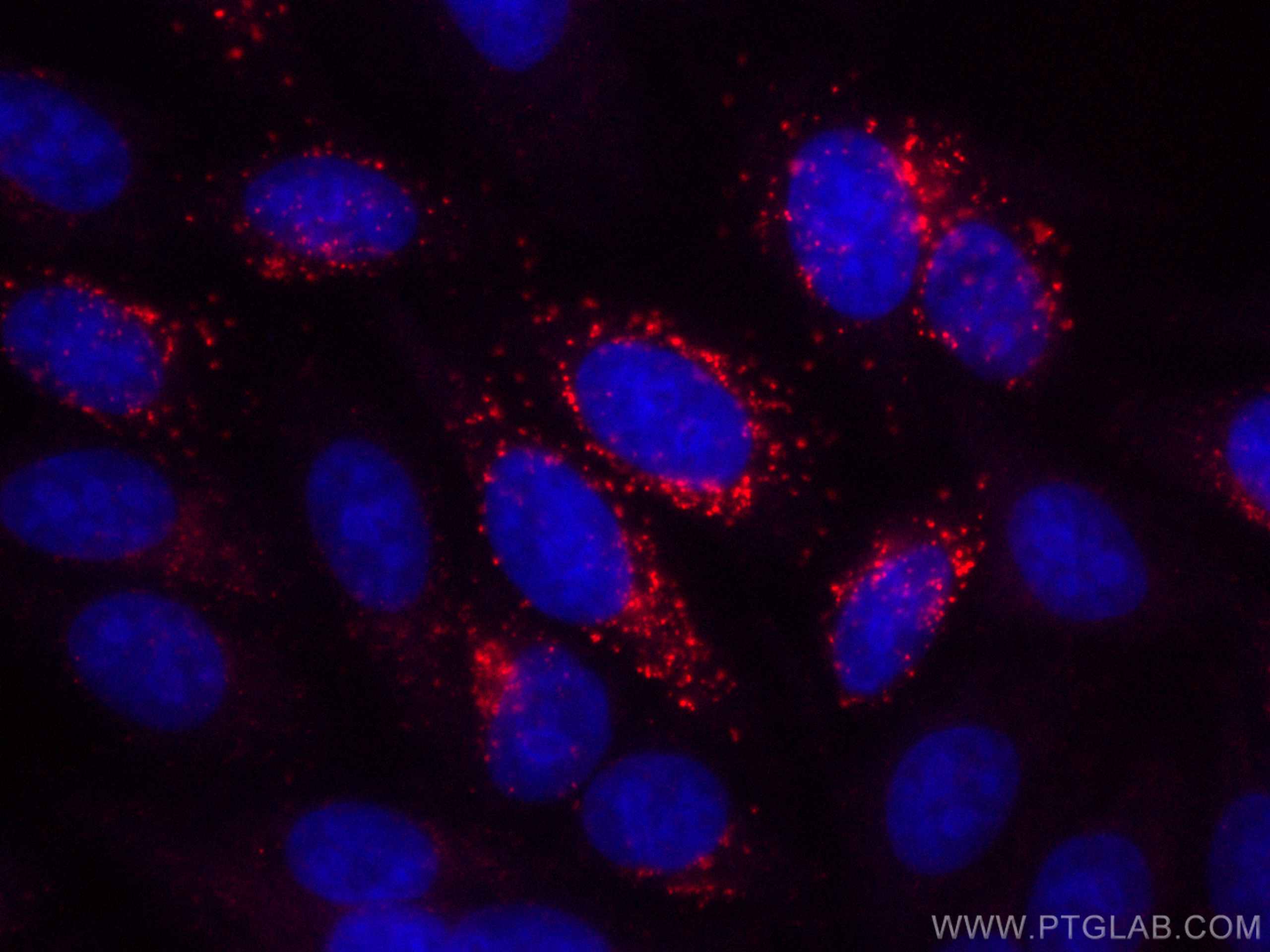Tested Applications
| Positive IF/ICC detected in | HepG2 cells |
Recommended dilution
| Application | Dilution |
|---|---|
| Immunofluorescence (IF)/ICC | IF/ICC : 1:50-1:500 |
| It is recommended that this reagent should be titrated in each testing system to obtain optimal results. | |
| Sample-dependent, Check data in validation data gallery. | |
Product Information
CL594-66260 targets Alpha 1B-Glycoprotein in IF/ICC applications and shows reactivity with human samples.
| Tested Reactivity | human |
| Host / Isotype | Mouse / IgG1 |
| Class | Monoclonal |
| Type | Antibody |
| Immunogen | Alpha 1B-Glycoprotein fusion protein Ag5414 Predict reactive species |
| Full Name | alpha-1-B glycoprotein |
| Calculated Molecular Weight | 54 kDa |
| Observed Molecular Weight | 72 kDa |
| GenBank Accession Number | BC035719 |
| Gene Symbol | A1BG |
| Gene ID (NCBI) | 1 |
| RRID | AB_2919973 |
| Conjugate | CoraLite®594 Fluorescent Dye |
| Excitation/Emission Maxima Wavelengths | 588 nm / 604 nm |
| Form | Liquid |
| Purification Method | Protein G purification |
| UNIPROT ID | P04217 |
| Storage Buffer | PBS with 50% Glycerol, 0.05% Proclin300, 0.5% BSA, pH 7.3. |
| Storage Conditions | Store at -20°C. Avoid exposure to light. Stable for one year after shipment. Aliquoting is unnecessary for -20oC storage. |
Background Information
Alpha-1B-glycoprotein (A1BG) is a plasma protein and is a member of the immunoglobulin superfamily. A1BG contains 474 amino acids and has 5 intrachain disulfide bonds. It has been reported that cysteine-rich secretory protein 3 (CRISP-3) is a specific and high-affinity ligand of A1BG. A1BG-CRISP-3 complex displays a similar function in protecting the circulation from a potentially harmful effect of free CRISP3 (PMID: 15461460).
Protocols
| Product Specific Protocols | |
|---|---|
| IF protocol for CL594 Alpha 1B-Glycoprotein antibody CL594-66260 | Download protocol |
| Standard Protocols | |
|---|---|
| Click here to view our Standard Protocols |



